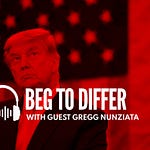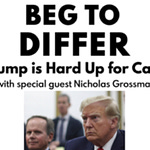Kristin Du Mez and Peter Wehner join the group to analyze evangelical support for Trump, as well as the Georgia indictment. Accountability, danger, and many unknowns. Plus, in our highlights and lowlights segment, Kristin notes the start of the school year and gives a shout-out to the teachers, while Bill extols the healing benefits of a vacation.
show …


















